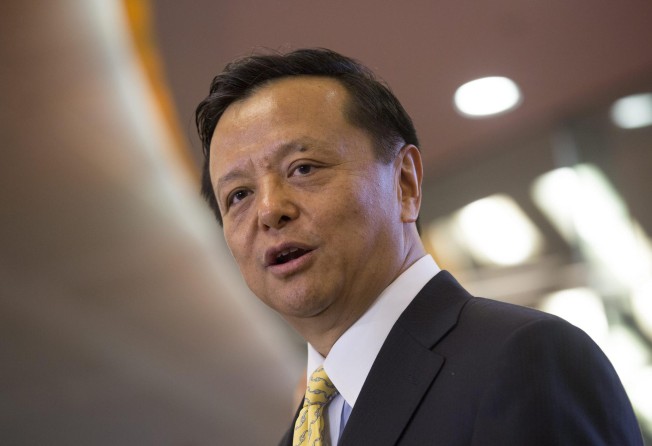Impasse over closing auction plan for Hong Kong stock exchange
Five years after scrapping auctions to determine closing stock prices, HKEx is looking at bringing them back, a move opposed by brokers

Local brokers are adamantly opposed to a reinstatement of the closing auction system by Hong Kong Exchanges and Clearing, but international institutional investors want the system back.
HKEx chief executive Charles Li Xiaojia is set to unveil his 2014 strategy for the exchange at a media briefing today, during which he is expected to discuss a study into the feasibility of determining closing prices using the auction system.
Christopher Cheung Wah-fung, a legislator for the financial services sector, said informal discussions have been conducted between exchange staff and brokers to collect their views.
"Many local brokers showed their strong opposition to bringing the closing auction system back," Cheung said.
"The current way of closing the market has been implemented for several decades and [the brokers] do not have a problem [with it]."
Cheung said when the closing auction system was implemented in 2008-2009, it proved a failure, leading to chaotic situations on a number of occasions, including HSBC price swings.
"Brokers worry the reinstatement of the system would repeat the same problem," he said.
Stock exchanges in most countries use auctions as a way to establish closing prices by pooling share orders and finding the level at which the most can be matched.
Hong Kong adopted the system in May 2008 but suspended it 10 months later after a huge swing in the share price of HSBC during the close on March 9, 2009. The Securities and Futures Commission began a formal investigation the next day into whether the closing auction was manipulated.
Jeffrey Chan Lap-tak, the chairman of the Hong Kong Securities Association, said if the exchange wanted to reinstate the closing auction, it would need to learn from the mistakes of 2009. "The HKEx would need to modify the system, such as adding a price cap," Chan said.
After scrapping the auction system in March 2009, HKEx turned the clock back and adopted the previous method to close the market, which was to take the median price from the final five transactions in a stock to calculate its closing level.
An executive from an investment bank, who declined to be named, said he supported the HKEx study into reintroducing the closing auction system.
"The closing auction system is a better method to determine the closing price than the current method. It makes it easier for the exchange traded fund manager to track the index if the exchange uses the auction to determine the closing price," he said.
The banker added that the HKEx could modify the system to prevent a repeat of the HSBC price swings in 2009, such as setting a price cap or adding safeguards to prevent potential manipulation during the auction period.
Another investment banker, who also declined to be named, said Hong Kong was one of the last major markets in the world that did not use an auction to close the market.
"This make Hong Kong's trading method very outdated. This would reduce the attractiveness of Hong Kong from the viewpoint of international investors," he said.